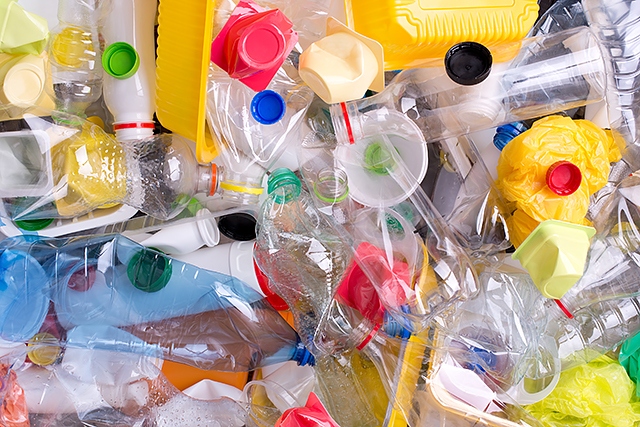Will you reduce your plastic usage this July?
Date published: 06 July 2019

Plastic Free July asks people to commit to reducing their consumption of plastic for the whole month
For the entire month of July, people all over the world are signing up to reduce our reliance on single use plastic.
A global initiative, Plastic Free July asks people to commit to reducing their consumption of plastic for the whole month.
The horrifying effects of single-use plastics have been realised after shocking images of plastic-choked oceans and piles of waste sent abroad for recycling have surfaced through documentaries like Blue Planet II, the BBC’s recent ‘War on Plastic with Hugh and Anita’, and ‘A Plastic Ocean’ which has previously been available via Netflix.
Of the more than 8 million tonnes of plastic that gets dumped in our oceans every year, half of it comes from disposable plastics that are only used once before being thrown away.
A public backlash against the versatile product has since ensued with a growing demand for alternatives – hardly surprising as statistics suggest that, just 9% of plastic ever made has been recycled since its inception with 79% having been thrown away.
Read more:
- www.rochdaleonline.co.uk/news-features/2/news-headlines/121160/what-happens-to-waste-once-it-has-been-thrown-away
- www.rochdaleonline.co.uk/news-features/2/news-headlines/120401/our-guide-to-recycling-singleuse-plastics
- www.rochdaleonline.co.uk/news-features/2/news-headlines/126711/more-than-a-third-of-north-west-residents-have-eliminated-plastic-straws-and-cups-to-help-environment-study-finds
It may seem like a daunting task as plastic is found in a multitude of products – from the obvious water bottles and takeaway boxes to the seemingly innocuous wet wipes and tea bags – but the movement simply asks people to cut the amount they use: if you buy a plastic carrier bag, consider bringing your own tote from home, or reuse a bag for life.
In July 2018 alone, 120 million people across the globe took part in the Plastic Free July challenge across 177 countries.
An IPSOS survey revealed that revealed that 29% of people surveyed worldwide were aware of the Plastic Free July challenge and almost half of those chose to take part in 2018.
According to the organisers, Plastic Free July participants reduce their household waste on average by 76kg per household per year (7.6%), cut their use of recyclables on average by 28kg per household per year (5.6%) and contribute to a total saving of 490 million kg of plastic waste each year.
At the time of publication, the Marine Conservation Society says 3,977,824 tonnes of plastics have been dumped into the ocean so far this year.
The Marine Conservation Society runs hundreds of beach cleans annually and during last year's Great British Beach Clean, 70% of the litter found on almost 500 UK beaches cleaned by volunteers was made of plastic or polystyrene, posing a huge threat to wildlife and humans.
Plastic bags, bottles and tiny plastic pieces are regularly found in the stomachs of turtles and other sea creatures and in some cases have caused their death from starvation or choking.
Sign up for the challenge here:
Have you committed to reducing your plastic use this July?
Keep Rochdale Online informed of your progress:
Do you have a story for us?
Let us know by emailing news@rochdaleonline.co.uk
All contact will be treated in confidence.
Most Viewed News Stories
- 1Royton haulage firm fined after Rochdale dad went to work and didn’t come home
- 2Six men arrested in Rochdale child exploitation investigation
- 3Newhey's Char Steakhouse and Bank Chamber close with immediate effect
- 4Two men arrested after police chase ends up in Middleton river
- 5Obituary: Jean Ashworth
To contact the Rochdale Online news desk, email news@rochdaleonline.co.uk or visit our news submission page.
To get the latest news on your desktop or mobile, follow Rochdale Online on Twitter and Facebook.


